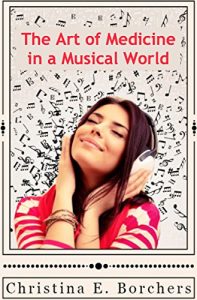How does sound impact your brain? And how can we use music to gain wholeness in ways pharmaceutical medicine is limited?
In this fusion between music and science, pianist turned pharmacology and toxicology scientist, Christina Borchers, guides us through the powerful intersection of the two fields. The body is naturally capable of self-regulation and healing. Music therapy activates our own pathways to begin working. Drawing upon breakthrough studies in music therapy along with music history, Borchers exposes:
• How sound is the most dominant of the senses
• That there are two forms of music: the music of playing and the music of listening
• Why we get excited by songs from our childhood
• How to form intimate connections within the community
• What music therapy can teach us about ourselves
There is no question that music is an emotional companion in all stages of our lives. Whether you are already a performer or just a lover of music, Borchers’ The Art of Medicine in a Musical World will help you to find your unique relationship with sound.
In this fusion between music and science, pianist turned pharmacology and toxicology scientist, Christina Borchers, guides us through the powerful intersection of the two fields. The body is naturally capable of self-regulation and healing. Music therapy activates our own pathways to begin working. Drawing upon breakthrough studies in music therapy along with music history, Borchers exposes:
• How sound is the most dominant of the senses
• That there are two forms of music: the music of playing and the music of listening
• Why we get excited by songs from our childhood
• How to form intimate connections within the community
• What music therapy can teach us about ourselves
There is no question that music is an emotional companion in all stages of our lives. Whether you are already a performer or just a lover of music, Borchers’ The Art of Medicine in a Musical World will help you to find your unique relationship with sound.






